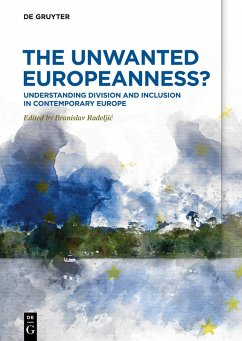Can we be optimistic about the future of Europe? To what extent has the European integrationist project affected the discourse about the core and the (semi-)periphery? Why does the European Union struggle with its own, and the neighbouring, Other? These are some of the questions addressed in this thought-provoking volume about the dilemmas surrounding the ever-uncertain European unity. A wide range of contributors have drawn upon invaluable sources and data to examine a broad selection of official discords and discrepancies characterizing the EU's relations with the Balkans, East-Central Europe, and beyond. Moreover, past events have shaped present political and socioeconomic cooperation (or its deficiencies), with no reason to believe that these present challenges will not further influence future arrangements at a supranational or intergovernmental level. Whichever the period, questions of belonging, solidarity, and the (un)wanted Other have remained relevant and have continued to penetrate discussions. In addition to complementing the existing analyses of European developments, the present findings are of great relevance for researchers, policymakers, and general readership. In fact, they are essential if we want to see Europe develop.
Hinweis: Dieser Artikel kann nur an eine deutsche Lieferadresse ausgeliefert werden.
Hinweis: Dieser Artikel kann nur an eine deutsche Lieferadresse ausgeliefert werden.








